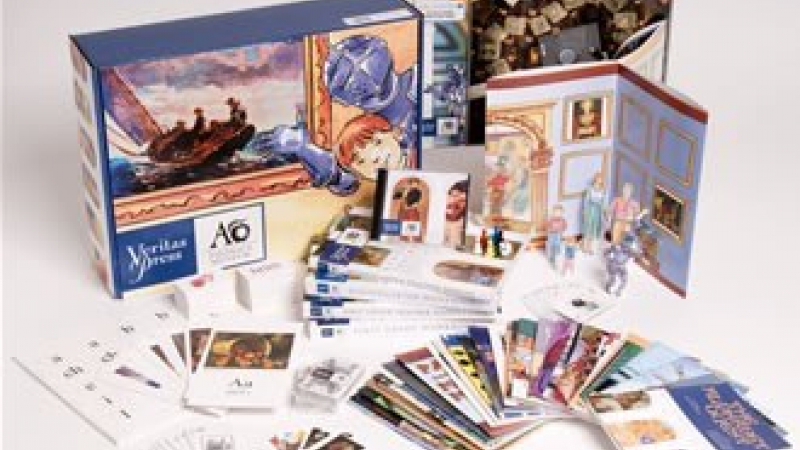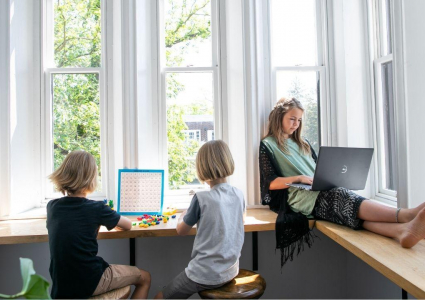The Veritas Approach to Phonics

What is phonics?
Phonics is nothing more than a systematic method of teaching sounds conveyed by letters and groups of letters and includes teaching children to combine and blend these to read or write words. Sounds easy, doesn’t it? Well, it is, but you need to have a plan in place.
We have studied many various phonics curricula and have considerable experience working with many of them. Our research, including historical standards and methods, convinced us that children would be much better off if their reading content had some meat to it. Consequently, we set out to create a program with Biblical and historical content and also used the soundest phonetic/linguistic principles and methods found throughout history. And that is why we created the Phonics Museum.
Teaching children to read is not a complex or complicated process. We know that alphabet tablets date back to Ancient Egypt, where they were baked tiles that had been scratched or etched. Looking back to the founding of Plymouth Colony, we see that children were taught to read from a hornbook. The hornbook was an alphabet board that was covered in front with a thin sheet of horn to prevent it from being soiled. The horn, harvested from cattle, was heated to make it malleable and then pressed until thin and translucent/ Hornbooks were used because actual books were so precious children were not permitted to use them.
At what age should I begin teaching my child to read?
- In one way, I would say the day they are born, but of course, I don’t mean that literally.
- But, you can begin playing songs that teach the alphabet and the sounds each letter makes very early in a child’s life.
- Before you know it, your three-year-old can recite the alphabet.
- At age three or four, you can start to show the child the written form of the alphabet. It is easy to play a game where you hold up a card and ask the child what letter this is. After they can identify their letters they are definitely ready to start a bit more formal approach to learning to read.
- At about the age of four or five, you can begin a formal approach to teaching phonics.
We want children to love reading. And sometimes, quick wins are a great way to ignite a love for something. We want to get children reading something... anything, as quickly as possible. That is why the first book of the Phonics Museum they read has so few consonants and only one vowel. We have found that this quick success has brought incredible results for children to love reading and effectively capture their interest in books. Not only do students read their first book in a matter of a few weeks, but the complexity builds to where they can actually read most anything by the end of the program. Standardized test scores have born this out, with averages routinely being in the 90+ percentile.
As we surveyed the market, we found that most phonetic readers were “Dick and Jane”ish – offering no real story. We thought this an unfortunate waste and sought to create readers (primers) that connected to meaningful events and stories.
We've chosen certain difficult words in the primers intentionally. You'll be teaching phonetic word attack—an extremely important principle in learning to read. Students benefit from sounding out unfamiliar words for which they do not know the meaning.
A secondary benefit is that they develop their vocabulary by learning the meaning of these new words. There is a great historical precedent for this approach from several hundred years ago when many children learned to read with only the Bible as their reader.
Teaching reading should be fun and interesting – captivating the student’s interest and love, hopefully for life. Whether you consider the Veritas Press Phonics Museum or another great program, I hope you and your children will enjoy the wonderful world of reading for a very long time.







